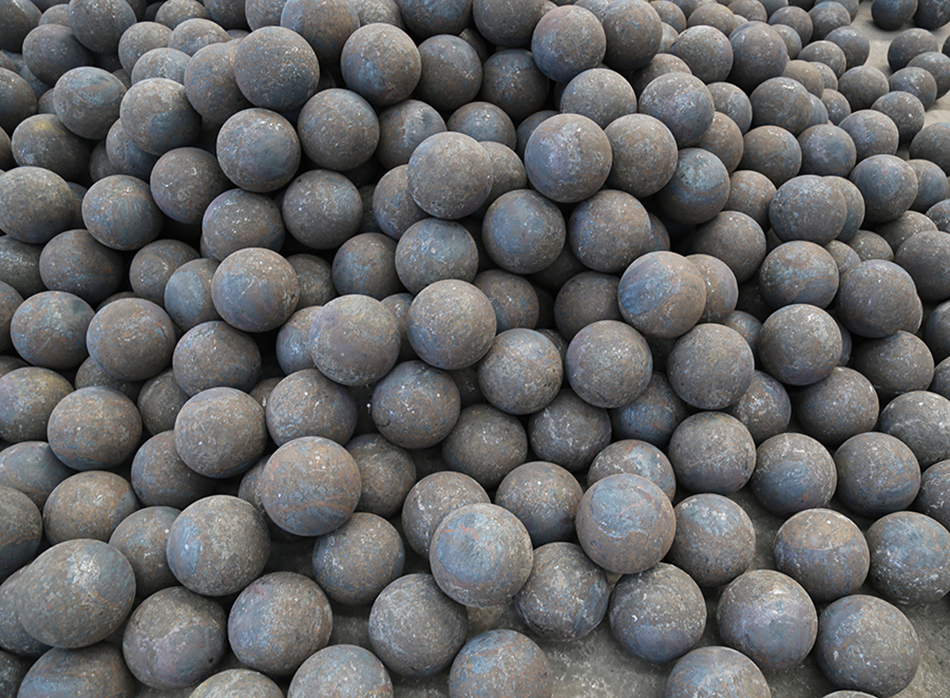Grinding Steel Ball: Essential Tools For Efficient Milling
Views: 909 Update Date:May 14 , 2025
In industrial sectors like mining, cement, power generation, and chemical processing, efficient material grinding is essential to productivity and quality. At the heart of this process lies a small yet powerful component — the grinding steel ball. These spherical, wear-resistant balls are used in ball mills to crush, grind, and blend materials into finer particles, helping industries achieve consistent output and reduce operational costs.
Whether you're involved in mineral processing or manufacturing high-performance materials, understanding the role and quality of grinding steel balls can significantly impact your overall operation.
What Are Grinding Steel Balls?
Grinding steel balls are hardened metal spheres used as the grinding media in ball mills and similar equipment. Typically made from high-carbon steel or alloy steel, these balls are designed to withstand intense impact and wear during the milling process. Depending on the application, they may vary in size (from a few millimeters to over 100mm in diameter), hardness, and composition.They are typically classified by manufacturing process and hardness:
●Forged Grinding Balls: Made by heating steel and shaping it under high pressure. Known for superior toughness and lower breakage rates.
●Cast Grinding Balls: Produced by melting steel and pouring it into molds. They are often used for dry grinding and come in various alloy compositions.
●High Chrome Grinding Balls: Contain chromium content above 10%, offering better corrosion resistance and wear life, especially in wet grinding environments.
Applications of Grinding Steel Ball
1.Mining and Mineral ProcessingGrinding balls are critical in crushing and separating valuable minerals from ore. They are used extensively in gold, copper, iron, and other metal mining operations where grinding efficiency and wear resistance matter most.
2.Cement Industry
In the production of cement, grinding steel balls help grind raw materials like limestone and clinker into fine powders that form the final product.
3.Thermal Power Plants
Coal pulverizing in power plants relies on grinding media to crush coal into fine particles for efficient combustion.
4.Chemical and Paint Industries
Fine grinding of raw chemicals and pigments ensures proper mixing and consistency in finished products like paints and coatings.
Key Characteristics of Quality Grinding Steel Balls
1.Hardness and ToughnessHigh hardness ensures better grinding efficiency, while toughness minimizes ball breakage. A balance between these two properties is essential for long-lasting performance.
2.Uniform Composition
Consistent chemical composition, including elements like carbon, chromium, manganese, and molybdenum, ensures predictable wear rates and mechanical behavior.
3.Low Wear Rate
High-quality grinding balls minimize material loss during operation, reducing costs and downtime associated with frequent replacements.
4.Surface and Internal Integrity
Proper heat treatment and manufacturing processes prevent internal cracks and surface defects, ensuring durability under harsh conditions.
How to Choose the Right Grinding Steel Ball
When selecting grinding steel balls, consider:●Type of Material Being Ground: Softer materials may require different hardness levels than harder ores.
●Mill Type: Ball mills, SAG mills, or vertical mills may need different sizes and compositions.
●Grinding Environment: Wet grinding may call for corrosion-resistant balls, such as high-chrome options.
●Cost vs. Performance: While high-quality balls may come at a higher price, they typically offer better wear resistance and lower long-term costs.
Conclusion
Grinding steel balls may seem like small components, but they play a big role in industrial productivity. The right choice of grinding media can dramatically improve efficiency, reduce operational costs, and enhance product quality across a range of industries. With ongoing advancements in metallurgy and manufacturing, grinding balls continue to evolve — offering better durability, precision, and performance than ever before.Whether you're managing a mining site, a cement plant, or a chemical facility, investing in high-quality grinding steel balls is key to maximizing your milling efficiency and maintaining a competitive edge.






